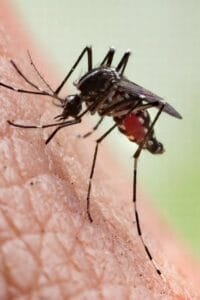Travel Vaccinations for Bali to Ensure a Safe and Worry-Free Trip
Planning a trip to Bali involves exciting preparations, from exploring stunning beaches to indulging in the island’s rich culture. However, ensuring you’re up-to-date with the vaccinations for Bali is a crucial step to staying healthy during your travels. Vaccination is an essential part of travel health, as it protects you from potential diseases that may be prevalent in Bali and Indonesia. This guide will cover everything you need to know about travel vaccinations, vaccine recommendations, and tips to stay safe during your trip to Bali. Vaccinations for Bali are a must for ensuring a safe journey.
Why Vaccinations Are Important for Bali Travelers

Traveling to Bali exposes you to unique health risks, especially if you plan to explore rural areas or interact with animals. Diseases such as rabies, malaria, dengue fever, and hepatitis are risks to consider. Travelers face an increased risk when visiting rural areas where healthcare facilities may be limited. Staying up-to-date with your routine vaccinations is also crucial to minimize your risk of contracting preventable illnesses. Vaccines are recommended based on the Department of Health and Aged Care guidelines. The Australian Government Department of Health and the National Immunisation Program recommend vaccines for international travel, ensuring travelers are protected during their trips.
Some diseases can have severe health consequences and may even require hospitalization. Vaccinations for Bali can help you avoid these risks. Access to quality healthcare in Bali can vary, especially in rural areas of Indonesia. Being vaccinated reduces the need for emergency medical care and ensures you can enjoy your trip without unnecessary interruptions or health concerns.
Recommended Travel Vaccinations for Bali
Routine Vaccinations
Before traveling overseas, ensure you’re up-to-date with routine vaccinations for Bali, including measles, polio, tetanus, and childhood vaccinations. These are part of the National Immunisation Program Schedule in most countries, but a booster may be necessary depending on your vaccination history.
Routine vaccinations not only protect you but also help prevent the spread of diseases to others. Vaccines for travel ensure you are safeguarded against vaccine-preventable diseases. Vaccinations for Bali should be prioritized before your trip. The recent outbreaks in Bali of diseases like measles highlight the importance of maintaining immunity through routine vaccinations.
Hepatitis A and B
- Hepatitis A: This disease is often contracted through contaminated food or water, making it a common risk for travelers in Bali. The vaccine is highly recommended for all visitors, especially those who plan to eat at street food stalls or dine in rural areas.
- Hepatitis B: Transmitted through bodily fluids, this disease is a risk for those who may engage in sexual contact, need medical treatment, or have prolonged stays in Bali. A combined Hepatitis A and B vaccine is also available for convenience.
Rabies Vaccination
Rabies is a concern in Bali due to the presence of stray dogs and monkeys, particularly in areas like Ubud’s Monkey Forest. A rabies vaccination is recommended for travelers spending time in rural areas or planning close contact with animals. If bitten or scratched, you must seek medical attention immediately.
Post-exposure rabies treatment is available in Bali but can be costly and may require travel to a major city for adequate care. Vaccination before your trip significantly reduces the urgency and severity of post-exposure treatment.
Typhoid
The typhoid vaccine is essential for travelers visiting areas with limited access to clean water or planning to eat local foods. Typhoid in Bali poses a significant health risk, making it recommended to receive this vaccine before your trip. Vaccinations for Bali protect against such health risks. Typhoid is caused by bacteria found in contaminated food or water, and the vaccine provides effective protection for travelers.
Japanese Encephalitis
For travelers spending extended periods in rural parts of Bali or engaging in outdoor activities, a Japanese encephalitis vaccine may be recommended. The disease is spread by mosquitoes and can cause severe neurological complications.
Yellow Fever Vaccination
Although Bali is not a yellow fever zone, proof of a yellow fever vaccination is required for travelers coming from countries where yellow fever is present. Ensure you have your vaccination certificate ready if this applies to you.
Cholera Vaccine
The cholera vaccine may also be recommended in certain cases, particularly for travelers staying in remote areas or regions where sanitation is poor. Cholera outbreaks can occur in parts of Indonesia, so consult your healthcare provider for advice.
Understanding Bali-Specific Health Risks

Dengue Fever
Dengue fever is spread by mosquitoes, primarily in tropical regions like Bali. While there is currently no vaccine for dengue fever, taking precautions to avoid mosquito bites is essential. Symptoms can include high fever, severe headaches, and joint pain, which can disrupt your trip significantly. Vaccinations for Bali do not cover dengue fever, so precautions are essential.
Tips to Avoid Mosquito Bites:
- Use insect repellents containing DEET or picaridin.
- Wear long-sleeved shirts and long pants, especially in the evening.
- Sleep under mosquito nets if staying in areas without air conditioning.
- Avoid stagnant water, as it serves as a breeding ground for mosquitoes.
Malaria
The risk in Bali is relatively low compared to other parts of Indonesia, but travelers visiting forested or rural areas should take precautions. Malaria prophylaxis may be recommended for certain travelers, so discuss your plans with a travel health clinic.
Measles
Measles outbreaks have been reported in Bali, making it vital to ensure you are up-to-date with your measles vaccination. This is particularly important for children or adults who may have missed routine immunisations.
Preparing for Your Trip to Bali
Consult a Healthcare Professional

Visit a doctor or travel health clinic at least 4–6 weeks before your trip. Seeking medical advice ensures that you meet the vaccine requirements and are prepared for travel to areas with specific health risks. This allows enough time for vaccinations to take effect and ensures you’re fully protected. Discuss your travel history and itinerary to determine any specific travel health needs. Vaccinations for Bali depend on your planned activities and locations.
A healthcare professional can provide guidance on the recommended vaccines based on the activities you plan to do and the areas of Bali you’ll visit. They can also assess if any additional vaccinations may be needed, particularly if you’re visiting rural areas with limited access to healthcare.
Vaccination Schedule
The vaccination schedule for Bali will vary based on your age, health, and travel plans. Ensure you plan early to complete the necessary doses for vaccines that require multiple injections, such as rabies or Japanese encephalitis.
Travel Vaccines and Booster Shots
Some travelers may need a booster for previously received vaccines, such as polio or tetanus. Staying up-to-date with their routine vaccinations ensures ongoing protection.
Tips for Staying Safe in Bali
- Prevent Mosquito Bites Mosquitoes carry diseases like dengue fever and malaria. Use repellents, wear protective clothing, and sleep under mosquito nets. A travel guide to Bali often highlights these precautions as essential. Vaccinations for Bali cannot protect against mosquito-borne diseases, so extra care is necessary.
- Avoid Contaminated Food and Water Only drink bottled or filtered water and avoid consuming raw or undercooked food to reduce your risk of typhoid and other illnesses. Vaccinations for Bali should include protection against waterborne diseases.
- Minimize Animal Contact Avoid handling animals to lower the risk of contracting rabies. If bitten or scratched, seek medical attention immediately.
- Carry Travel Insurance Comprehensive travel insurance is essential to cover unexpected medical expenses during your trip.
- Stay Informed About Outbreaks Monitor news about any disease outbreaks in Bali and take necessary precautions.
- Pack a First-Aid Kit Include essentials like bandages, antiseptics, and medications for common travel illnesses.
- Avoid Unsafe Activities Activities like diving or trekking may expose you to additional health risks. Vaccination requirements vary depending on your travel history and the need for your trip. Ensure you have the appropriate vaccination requirements for such activities.
Frequently Asked Questions
What Vaccinations Do I Need for Bali?
Common recommended vaccinations for Bali include hepatitis A and B, typhoid, rabies, and Japanese encephalitis. Check if any vaccine is particularly recommended for your travel itinerary.
Is a Polio Vaccination Required?
Polio is rare in Bali, but staying up-to-date with your polio vaccination is essential, especially for international travel.
Do I Need a Yellow Fever Certificate?
A yellow fever vaccination certificate is required if you’re entering Bali from a yellow fever-endemic country.
How Can I Avoid Health Risks in Bali?
Follow precautions like avoiding contaminated food or water, protecting against mosquito bites, and staying informed about the areas of Bali you’ll be visiting. Travel medicine experts recommend consulting professionals to determine vaccines for measles or other diseases. Vaccinations for Bali can minimize other health risks.
Are Travel Vaccines Covered by Insurance?
Some travel vaccines may be covered by your health insurance. Check with your provider and factor in the cost when planning your trip.
Final Thoughts on Travel Vaccinations for Bali
Ensuring you are vaccinated is an essential part of your travel plans. Whether you’re exploring the vibrant streets of Ubud, trekking in rural areas, or relaxing on pristine beaches, being prepared helps you stay safe and healthy. Consult a healthcare professional for tailored advice, and take the necessary steps to protect yourself from health risks associated with Bali travel. Vaccinations for Bali are vital for ensuring peace of mind. By prioritizing your travel health, you can fully enjoy the breathtaking beauty of Bali. Taking the time to understand vaccine requirements and consulting travel medicine specialists ensures a safe journey.


